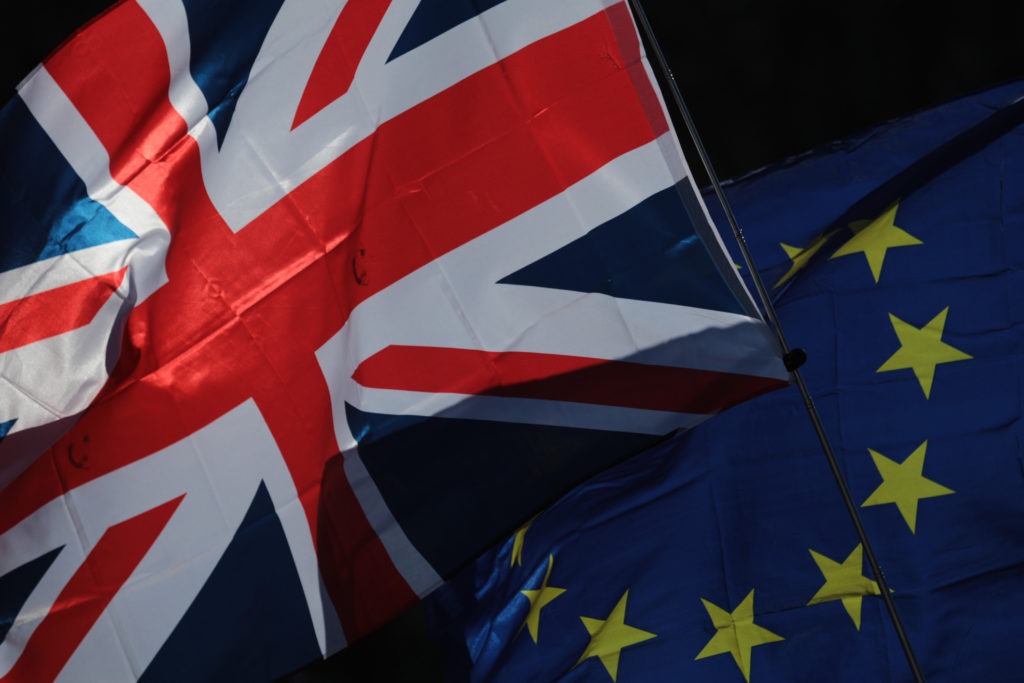ACEA calls for Brexit deal to take into account ‘special’ automotive industry
08 April 2020

8 April 2020
Any trade deal that replaces the UK’s membership of the European single market must reflect the deeply intertwined automotive sector, or risks damaging the continent’s industry.
That is the recommendation of the European Automotive Manufacturers Association (ACEA), which also warns that the wrong kind of deal may also hamper the rollout of electric vehicles (EVs). With manufacturers relying on electric technology to meet emissions targets set by the EU, such disruption could have far-reaching consequences.
The association states that three million vehicles a year, with a total worth of around €54 billion, are traded between the EU and the UK each year. The trade in parts is worth €14 billion, while the industry relies on ′just-in-time’ deliveries for the 30,000 components that make up a vehicle.
′With this interdependence in mind, it is essential that tariff-free trade and an open flow of goods and services are a cornerstone of the ongoing negotiations between the EU and the UK,’ stated ACEA’s director general, Eric-Mark Huitema. ′Any future trade agreement must, therefore, combine zero tariffs, workable rules of origin, simplified customs requirements and ensure the absence of technical barriers to trade.’
Origin story
ACEA states that the rule of origin for motor vehicles should reflect the very high level of integration between the EU and the UK. At the same time, special consideration should also be given to the trade in batteries for EVs, given the lack of European or UK manufacturing capacity.
′Developing and deploying battery technologies is a fundamental challenge for the automotive industry; it is also key to Europe’s ambitious climate agenda,’ explains Huitema. ′The rules of the future trade deal should not limit manufacturers’ ability to bring low and zero-emission technologies to the market.’
While both Europe and the UK are looking to become market leaders in battery manufacturing, the vast majority of batteries for electric vehicles currently come from Asia. In the UK, Nissan’s Sunderland plant builds the Leaf EV, while Jaguar Land Rover (JLR) is tooling up its production facilities for the manufacture of electric models.
Joined-up thinking
Any divergent legislation could become a significant impediment to trade, requiring manufacturers to adapt or develop new technologies to comply with different requirements. Huitema adds: ′In their common interest, the EU and the UK should actively maintain alignment across all key automotive legislation.’
This includes existing legislation on type approval, safety and environmental performance, as well as the framework for future technologies such as autonomous vehicles. Already, the UK is looking to move away from EU legislation in some of these areas, with manufacturers looking at the possibility of needing to obtain type approval for two markets. Volvo has warned that should this need occur, it would look to pull some models out of the UK, in a cost-saving exercise.
′The clock is ticking for these complex negotiations, and we are very concerned that the time remaining under the transitional arrangement is insufficient, especially given the ongoing COVID-19 crisis,’ warned Huitema. The unintended consequence of this could be a no-deal scenario. In terms of tariffs alone, this would have a massive impact, with some €6 billion being added to the cost of doing cross-channel trade.
′Such an outcome would be catastrophic to the automotive sector, and the European economy in general, and should be avoided at all reasonable cost.’
Delay potential
Brexit negotiations have been impacted by the coronavirus (COVID-19) pandemic. The EU’s chief negotiator, Michel Barnier, and the UK’s negotiator David Frost have both been in self-isolation after testing positive for the virus. At the same time, there are questions about how far talks can progress at present, especially with UK Prime Minister Boris Johnson in intensive care with persistent symptoms.
Therefore, it may be necessary to delay talks, and extend the deadline beyond 31 December. The UK Government originally intended to have a deal in place by June, stating it would walk away if nothing had been agreed – a move that is now almost certainly untenable. With resources focused on navigating through the COVID-19 crisis, Brexit is almost forgotten about, and without an extension, the UK risks crashing out of the EU without a deal at the end of the transition period.
The key consequence for the automotive sector is that WTO trade rules would be applied, resulting in higher prices for cars as well as for replacement parts and insurance. In a downside scenario analysis by Autovista Group, UK new-car registrations are forecast to decline by 32% in 2020 and increase by 29% in 2021 but only grow by a further 5% in 2022. At 2.1 million registrations, the market would still be 200,000 units lower in 2022 than in 2019.